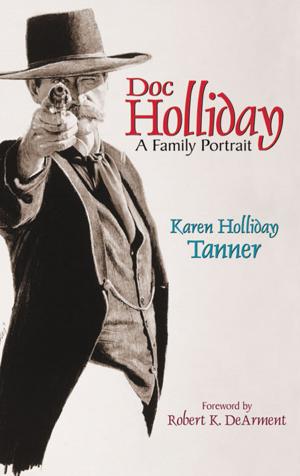Forty-Seventh Star
New Mexico's Struggle for Statehood
Nonfiction, History, Americas, United States, 19th Century, Social & Cultural Studies, Political Science, Government| Author: | David Van Holtby | ISBN: | 9780806187860 |
| Publisher: | University of Oklahoma Press | Publication: | September 28, 2012 |
| Imprint: | University of Oklahoma Press | Language: | English |
| Author: | David Van Holtby |
| ISBN: | 9780806187860 |
| Publisher: | University of Oklahoma Press |
| Publication: | September 28, 2012 |
| Imprint: | University of Oklahoma Press |
| Language: | English |
New Mexico was ceded to the United States in 1848, at the end of the war with Mexico, but not until 1912 did President William Howard Taft sign the proclamation that promoted New Mexico from territory to state. Why did New Mexico’s push for statehood last sixty-four years? Conventional wisdom has it that racism was solely to blame. But this fresh look at the history finds a more complex set of obstacles, tied primarily to self-serving politicians. Forty-Seventh Star, published in New Mexico’s centennial year, is the first book on its quest for statehood in more than forty years.
David V. Holtby closely examines the final stretch of New Mexico’s tortuous road to statehood, beginning in the 1890s. His deeply researched narrative juxtaposes events in Washington, D.C., and in the territory to present the repeated collisions between New Mexicans seeking to control their destiny and politicians opposing them, including Republican U.S. senators Albert J. Beveridge of Indiana and Nelson W. Aldrich of Rhode Island. Holtby places the quest for statehood in national perspective while examining the territory’s political, economic, and social development. He shows how a few powerful men brewed a concoction of racism, cronyism, corruption, and partisan politics that poisoned New Mexicans’ efforts to join the Union. Drawing on extensive Spanish-language and archival sources, the author also explores the consequences that the drive to become a state had for New Mexico’s Euro-American, Nuevomexicano, American Indian, African American, and Asian communities.
Holtby offers a compelling story that shows why and how home rule mattered—then and now—for New Mexicans and for all Americans.
New Mexico was ceded to the United States in 1848, at the end of the war with Mexico, but not until 1912 did President William Howard Taft sign the proclamation that promoted New Mexico from territory to state. Why did New Mexico’s push for statehood last sixty-four years? Conventional wisdom has it that racism was solely to blame. But this fresh look at the history finds a more complex set of obstacles, tied primarily to self-serving politicians. Forty-Seventh Star, published in New Mexico’s centennial year, is the first book on its quest for statehood in more than forty years.
David V. Holtby closely examines the final stretch of New Mexico’s tortuous road to statehood, beginning in the 1890s. His deeply researched narrative juxtaposes events in Washington, D.C., and in the territory to present the repeated collisions between New Mexicans seeking to control their destiny and politicians opposing them, including Republican U.S. senators Albert J. Beveridge of Indiana and Nelson W. Aldrich of Rhode Island. Holtby places the quest for statehood in national perspective while examining the territory’s political, economic, and social development. He shows how a few powerful men brewed a concoction of racism, cronyism, corruption, and partisan politics that poisoned New Mexicans’ efforts to join the Union. Drawing on extensive Spanish-language and archival sources, the author also explores the consequences that the drive to become a state had for New Mexico’s Euro-American, Nuevomexicano, American Indian, African American, and Asian communities.
Holtby offers a compelling story that shows why and how home rule mattered—then and now—for New Mexicans and for all Americans.















